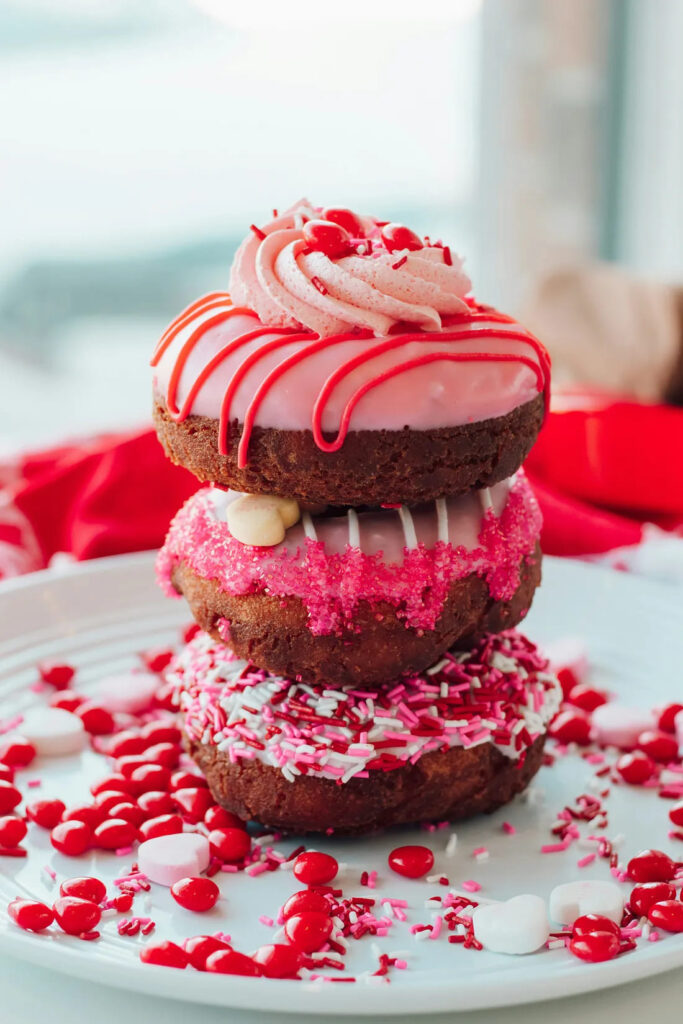
If you’re scrolling through the headlines, this one probably stops you cold: “Desserts are healthier than salads?!” Like, what?! It’s the kind of thing that makes you do a double-take, right?
After all, isn’t dessert the enemy of every health-conscious diet, while salads are the virtuous superheroes? Well, buckle up, because things aren’t always as black and white as they seem.
A Sweet Shock to the System
Now, before you dive head-first into the nearest cheesecake, let me break this down. Growing up, I was a certified salad fanatic. I could stack spinach, tomatoes, cucumbers, and an entire garden’s worth of greens into a bowl with the confidence of a nutritionist.
But even then, I often found myself with headaches or feeling sluggish. One day, craving something sweet after a bland salad, I indulged in a slice of dark chocolate cake. Surprisingly, I felt way more energized and satisfied than I had all week. That experience planted a little seed of doubt in my “salads are supreme” mindset.
So, what’s going on? Can desserts actually beat salads at their own health game? And why does the idea of desserts being “healthy” feel so wrong — and yet so right?
It’s Not All Sunshine and Spinach
The truth is, salads can be surprisingly deceptive. The problem with salads is that they’re often high in fiber but low in fats and proteins, which makes them a gamble.
Fiber is great and all, but without a balance of healthy fats and proteins, a salad alone can leave you craving more and feeling unsatisfied. It’s like getting a gift box that looks exciting on the outside, only to open it and find…socks. Useful, sure, but you wanted a little thrill!
Then there’s the issue of what’s on those salads. A bowl of greens isn’t really all that exciting, so many of us throw on “extras” to make them palatable. Before we know it, we’ve added creamy dressings, candied nuts, croutons, or cheese.
These toppings may bring taste, but they can send calories through the roof without providing substantial nutrition. What was meant to be a “clean” meal becomes a sneaky sugar-and-fat bomb.
Dessert Isn’t the Devil You Thought It Was
Now, here’s where desserts get interesting. I know, it sounds like a plot twist, right? Let’s be clear: not all desserts are created equal. We’re not talking about candy bars, pastries slathered in icing, or the kind of towering ice cream sundaes you’d find at a fair.
We’re talking about mindful, balanced treats — think dark chocolate, Greek yogurt parfaits, or even a homemade fruit tart.
Desserts can actually provide a range of benefits. Take dark chocolate, for example. Rich in antioxidants and with a natural ability to boost serotonin (your brain’s “feel-good” chemical), a few squares of dark chocolate can lift your mood and give you energy.
And, unlike a light salad that leaves you hungry within an hour, a thoughtfully crafted dessert can leave you feeling genuinely satisfied.
When you enjoy dessert with intention, it can actually balance blood sugar levels, prevent the urge to binge later, and reduce that all-too-familiar “craving monster” that sneaks up after a bland meal.
With a bit of protein (like nuts or Greek yogurt) or natural fiber from fruits, a dessert can become a complete mini-meal that won’t derail your health goals.
Don’t Believe Everything You’re Told About “Healthy” Choices
So why do salads get to sit on their high horse? Let’s get real: a lot of our food biases come from advertising and diet culture. Salad is branded as healthy because it’s the ultimate diet food.
It’s green, it’s fresh, it looks good in Instagram pictures with a fancy mason jar. Desserts, on the other hand, are usually written off as “cheat” food. But this black-and-white thinking misses the nuance of actual nutrition.
A “healthy” diet doesn’t have to be restrictive, tasteless, or full of rabbit food. It should be about balance — getting in nutrients, proteins, carbs, and fats in a way that feels satisfying and sustainable.
And sometimes, yes, that balance means swapping out a salad for a slice of real, nutrient-packed dessert. Dessert lovers, you can finally exhale: you don’t need to feel guilty for enjoying something sweet.
How to Keep Desserts Balanced and Delicious
If we’re going to take this approach seriously, there are a few ways to ensure your dessert isn’t just a sugar spree. Here’s how to do it with finesse:
- Opt for natural sweeteners: Swap out refined sugars for honey, maple syrup, or dates. They bring a gentler sweetness and add trace minerals, so you’re getting more bang for your bite.
- Balance it out: Add a source of protein or healthy fat. Nut butters, chia seeds, or Greek yogurt add richness and prevent that sugar crash.
- Keep portions realistic: This isn’t about gorging on cake every night; it’s about adding a small, satisfying treat that complements your meal.
- Look for quality ingredients: High-quality dark chocolate, organic fruits, and whole grains can elevate a dessert to something your body will actually appreciate.
It’s About Enjoyment AND Nourishment
At the end of the day, life is too short to spend eating salads you don’t enjoy and then sneaking cookies in the pantry because you feel unsatisfied.
This whole revelation about dessert isn’t an excuse to abandon healthy eating but rather an invitation to rethink it. Health is a balance, a journey — and yes, it sometimes includes a slice of cake or a square of dark chocolate.
So the next time you’re faced with that big, boring salad versus a mindful, nourishing dessert, don’t feel guilty if you reach for the sweet option. Food is about more than just “good” or “bad” — it’s about feeling good, savoring each bite, and enjoying the journey.









